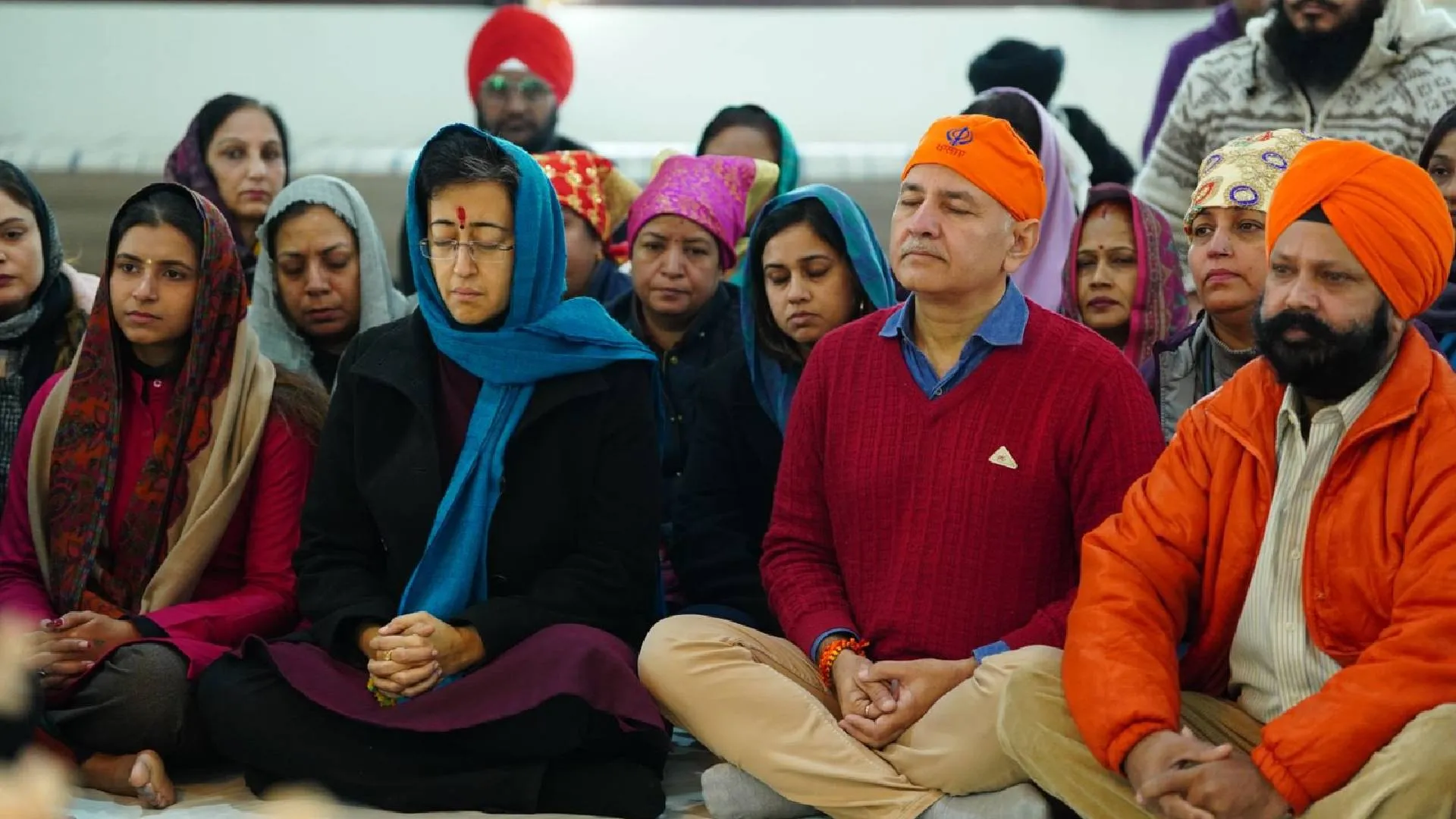In 1704 Anandpur was under an extended siege by the allied forces of the Mughals and the hill chiefs. The combined mughal and Raja forces numbered a million and were gathered to exterminate the Sikhs. Provisions were completely exhausted and the Khalsa were living on leaves and the bark of trees.
The Mughals and hill chiefs that had surrounded Anandpur for eight months were demanding it be evacuated. They called on any person that rejected Sikhism and announced that they were ‘not a Sikh of Guru Gobind’ would be left untouched and be free to leave the siege unharmed. The Jats of Majha decided to leave and go home. Led by Mahan Singh Brar they told Guru Gobind Singh that they were not his Sikhs any more and wanted to leave. Guru Ji accepted what he was told by the deserters and asked them to write a disclaimer saying they were no longer his Sikhs and sign it. Out of hundreds of Sikhs, forty Sikhs signed the Beadava (disrespectful) document; then they were permitted to leave Anandpur.
Note: In the history of warfare, deserters have never been treated with such leniency and forgiveness.
The forty deserters from Anandpur lived in the Majha region in the district of Amritsar. In one of their villages, called Jhabal, there lived a brave woman named Mai Bhago. She was known for her faith and courage, and she had a great zeal to serve the Guru. Her blood boiled at the timidity of those who, beaten by the ravages of the prolonged siege of Anandpur, disclaimed Sri Guru Gobind Singh Ji to return to their homes. She was smitten at the ignominy shown by these forty deserters. Mai Bhago charged them with cowardice and lack of faith.
She was determined to wipe out this stain of infamy on Majha Singhs. She went around the neighbouring villages and exhorted the women folk not to be hospitable to the deserters who had disclaimed the Guru.When the forty arrived home, rather than finding wives joyful for their return, happy that they were alive, what did they find? Wives who were appalled that they had deserted Guru Gobind Singh Ji. The Khalsa women had already consciously chosen widowhood. They chose to bear the burden of seeing their husbands dead, of being left with the sorrow of being widowed, of raising their children alone, of having their economic and personal futures comprised with the absence of a husband, than to see their husbands walk away from their destinies and betray their Guru.
Mai Bhago shamed and censured the Singhs for their cowardice and eventually brought them back to the path of devotion and sacrifice. She, donning a man’s dress, inspired them to return to the fold of Sri Guru Gobind Singh Ji. Feeling ashamed for their act of cowardice, they followed her banner and joined in the famous battle of Sri Muktsar Sahib, which was fought against the Mughal forces at Khidrana in the district of Ferozepur.Knowing that Wazir Khan was advancing to attack the Guru, Mai Bhago took up positions along with forty Sikhs and others at Muktsar. Meanwhile, Guru Gobind Singh had to evacuate the fort of Anandpur. Guru Ji’s children were lost in the confusion. The two youngest sons, Zorawar Singh and Fateh Singh, were with their grandmother (mother of Guru Gobind Singh ji). While the two elder sons, Ajit Singh and Jhujhar Singh were with their father.
At the Battle of Chamkaur, Guru Ji’s elder sons attained martyrdom. Guru Ji was saved by five Sikhs, he evacuated Chamkaur and was traveling in Malwa region, being pursued by Mughal forces of Aurangzeb. Travelling day and night in the jungles of Malwa region, imperial Mughal forces were in constant pursuit of the Guru. Guru Gobind Singh reached village of Khidrana, when Mai Bhago and the men, she was leading stopped near the dhab or pool of Khidrana. The imperial army in pursuit of Guru Gobind Singh had almost overtaken him. The 40 Sikhs challenged the pursuing host of 10,000 soldiers and fought furiously. All forty Sikhs attained martyrdom in this pitched battle, in which Guru himself was supporting them with a shower of arrows from a nearby hill.
When Guru Gobind Singh Ji along with Mai Bhago were collecting the dead bodies for cremation, he found one of the 40 Sikhs, Mahan Singh, still clinging to life. On seeing the Guru, he made an effort to rise, the Guru at once took him in his arms, and sat down with him. Mahan Singh tearful and exhausted, made a last request. He asked Guru Gobind Singh to forgive the 40 Sikhs and destroy the beadava letter disclaiming they were not Sikhs of the Guru. Before Mahan Singh passed away Guru Gobind Singh, tore up the document. Showing infinite mercy towards his followers he named the 40 deserters who had fought bravely the Chali Mukte (40 liberated ones). After them Khidrana became Muktsar – the Pool of Liberation.
Etymologically, ‘mukta’ from Sanskrit ‘mukht’ means ‘liberated, delivered’ from the cycle of birth and death. Mukti (liberation) in Sikhism is the highest spiritual goal of human existence, and mukt or mukta is the one who has achieved this state of final beatitude. Mukta, also means a pearl, and the word would thus signify a title or epithet of distinction. It was probably in this sense that the five Sikhs, who on 30 March 1699 received the vows of the Khalsa immediately after the first five Panj Piare, were blessed with the title mukta, plural mukte.
It is worth noting that the forty martyrs of Muktsar, who deserted the Guru after being driven to desperation by the prolonged siege of Anandpur, who earned this title by sacrificing their lives for the Guru, who redeemed their past apostasy of having disowned the Guru, were inspired by the moral consciousness of their Khalsa wives. Without the spiritual understanding of their wives, the 40 liberated ones would have never returned to their Guru and would have gone through lifetimes of karma to repay their mistake. These women knew the duty and role of a Khalsa wife is to serve the soul of her husband and deliver him to his destiny and to God and Guru no matter what. Who liberated these men? Themselves? No – it was the grace, wisdom and blessing of their wives that allowed them to be liberated. It was the meditative discipline, trust in the divine and strength of character that allowed these women to look at their husbands in the eye and say, “You are dead to us, no matter what! Go back and stand with your Guru”.























